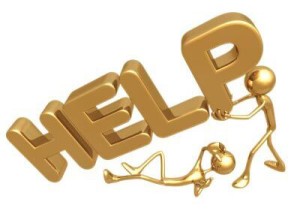
For the average lay person without medical training, attempting to help someone who is injured is a scary prospect. While the average rescuer has the best intentions, injuries can happen. For example, a person giving CPR may break a rib while performing chest compressions. Other rescuers may not realize that a person has suffered a neck injury, and could make the person’s condition worse while trying to help them.
California recognizes the instinct to help, and protects would-be rescuers from legal liability stemming from their efforts through the state’s Good Samaritan Law. According to this law, anyone who freely and responsibly attempts to give aid after an emergency is immune from lawsuits.
This was not always the case, and many people are not aware of the current state of the law. From 2007 through 2009, an important case regarding the Good Samaritan Law wound its way through the court system, ending in a California Supreme Court decision which was overturned by the state legislature.
In 2007, a woman named Lisa Torti was following her friends in a separate car when the driver in front of her lost control and crashed into a telephone pole. Afraid that the car would ignite or explode, Ms. Torti pulled her friend Alexandra Van Horn from the wreck, injuring her spine in the process. Ms. Van Horn sued Ms. Torti after Ms. Torti’s efforts left her paralyzed.
According to the state of the law at the time, immunity under the Good Samaritan Law was only available for people who provided medical assistance in an emergency. Since Ms. Torti had not performed any medical procedures, the California Supreme Court said that she was not immune and Ms. Van Horn was able to file her lawsuit against her friend.
In response to the Supreme Court decision, the California legislature amended the law to say that any person who provided either medical or non-medical emergency help after an accident or injury could not be sued for any injuries which occurred. Now, any rescuer who attempts to assist in an emergency can do so without hesitation.
The Good Samaritan Law also specifies that the rescuer must be performing these services for free, and not as part of his or her job. This means that first responders and EMTs can face lawsuits if they negligently injured a person after an emergency. Because these professionals are not volunteers and are expected to have medical training and rescue skills, they can still be held responsible if they exacerbate or cause an injury.
EMTs and first responders provide an invaluable services and save lives every day. However, like any human being, they can make mistakes and occasionally hurt the people they are trying to help. When a medical error or mistake causes you injury, you shouldn’t have to suffer in silence.
At the Trial Law Offices of Bradley I. Kramer, M.D., Esq., our dedicated medical and legal staff will evaluate the error, and will help you determine if you have either a negligence or malpractice case. Dr. Bradley I. Kramer is both a medical doctor and an attorney, and has the unique expertise you need on your side to fight for adequate compensation after an accident or injury.
For a free consultation, contact us by calling (310) 289-2600 and speak with an experienced Los Angeles medical malpractice attorney today.
